Key takeaways:
- Root canal treatment alleviates pain by removing infected pulp, often leading to a healthier smile.
- Maintaining dental health prevents pain and extensive treatment, emphasizing the importance of regular checkups.
- Common myths, such as root canals being extremely painful or leading to illness, can foster unnecessary fear.
- Effective communication with the dentist and practicing anxiety management techniques improve the overall experience of dental procedures.
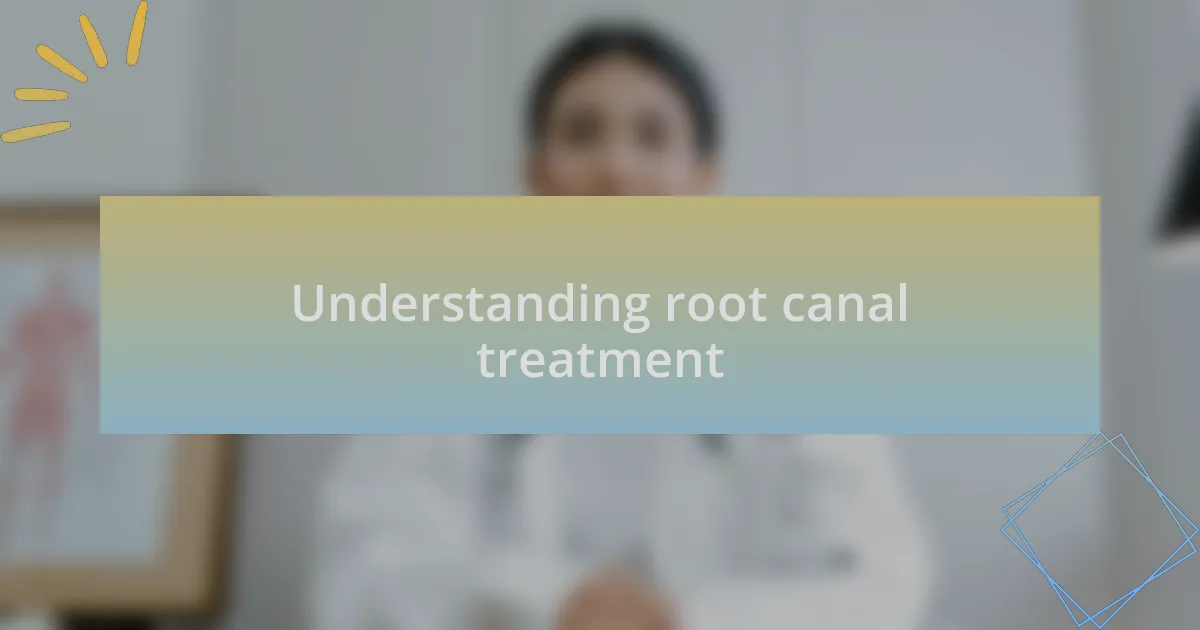
Understanding root canal treatment
Root canal treatment can seem daunting, but it’s often the key to saving a tooth. When I first heard that I needed one, I was understandably anxious. I couldn’t help but wonder: would it be painful and worth it? The reality is that this procedure removes infected pulp, alleviating pain and preserving my tooth for years to come.
During the treatment, the dentist carefully cleans and shapes the inner part of the tooth before sealing it, making it feel much better afterward. I remember feeling a sense of relief once the procedure was explained to me in simple terms. It helped me realize that this wasn’t just about pain; it was about restoring my dental health and preventing future issues.
What surprised me most was the recovery process. After the treatment, I expected discomfort, but honestly, it felt so much better than the throbbing pain I had endured before. That’s when it dawned on me: root canals have a reputation for being scary, but in my case, they were a gateway to relief and a healthier smile, reminding me that sometimes the thought of a procedure can be far worse than the actual experience.
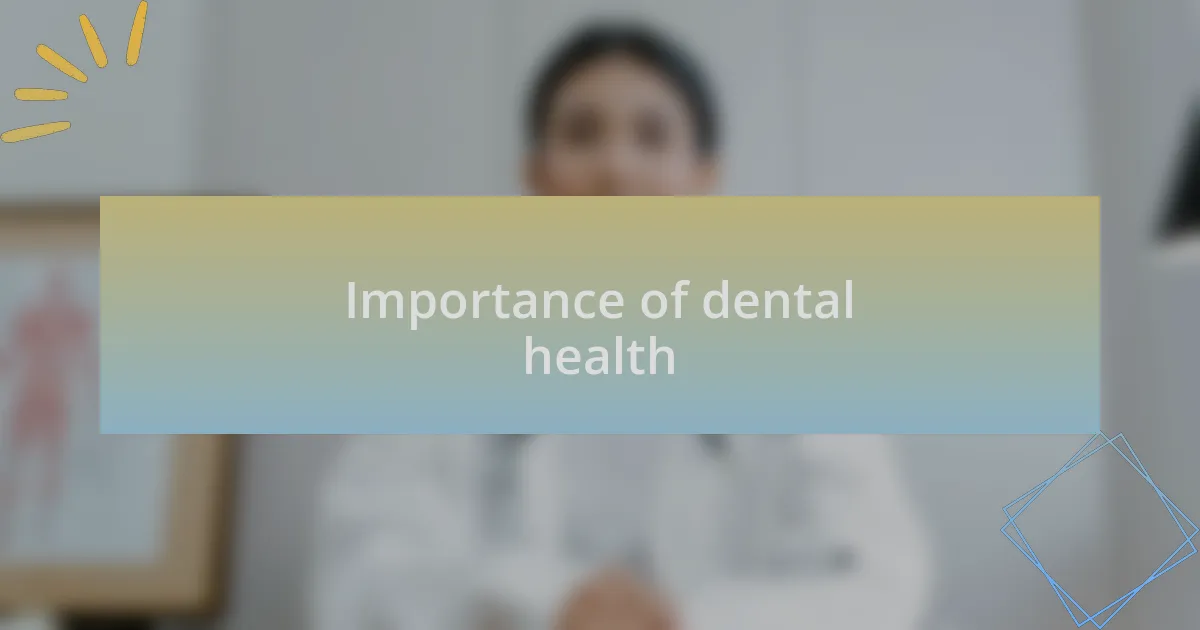
Importance of dental health
Dental health is an essential part of our overall well-being. I never fully appreciated this until I faced the consequences of neglecting my teeth. It made me realize that every tooth plays a crucial role in my life—impacting everything from eating and speaking to my confidence when I smile.
When I think about the times I skipped dental checkups, I shudder at the thought of potential problems lurking below the surface. It’s fascinating how even minor issues can escalate into something serious if left unattended. This firsthand experience taught me that maintaining good dental health isn’t just about aesthetics; it’s about preventing pain and the inconvenience of extensive treatments later on.
Sometimes, I ask myself what my daily life would look like without proper dental care. I can say from experience that regular brushing, flossing, and visiting the dentist have not just kept my teeth strong but have also boosted my overall health. After all, the mouth is often referred to as the gateway to the body, highlighting just how interconnected our dental health is with our physical health.
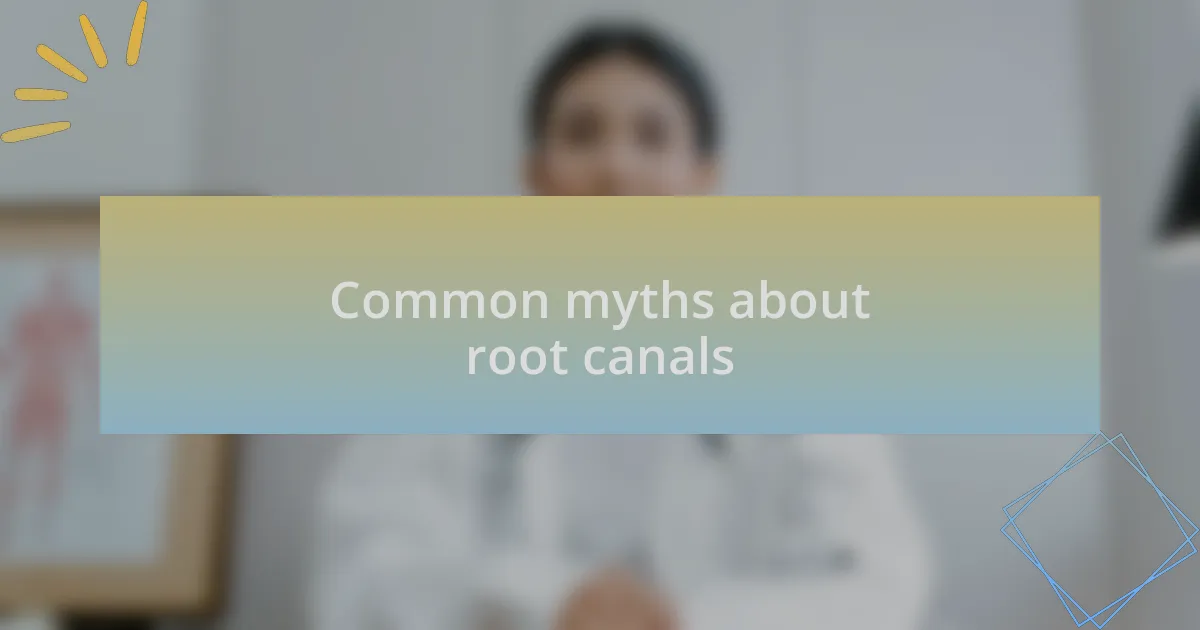
Common myths about root canals
It’s surprising how many myths swirl around root canals. One of the biggest misconceptions I encountered is that they are extremely painful. In my experience, the pain associated with an untreated tooth can far exceed anything I felt during the procedure itself. The numbing agent and anesthesia used make the process much more manageable than most people imagine.
Another common myth is that getting a root canal means losing the tooth. I used to think once a tooth needed this treatment, it was essentially a lost cause. However, I learned that many teeth can be saved and restored to full function with a root canal, allowing me to keep my natural smile intact. It’s amazing how my perspective shifted after realizing I wouldn’t need to replace a tooth with an implant or bridge.
Lastly, there’s this strange belief that root canals lead to illness or other health problems. I remember discussing this with friends who were wary of treatment because of something they read online. However, dental professionals assure us that root canals are safe and have no link to systemic health issues. It’s crucial to rely on expert opinions rather than myths, as they can lead to unnecessary fear and hesitation in seeking care.

Lessons learned during the procedure
I discovered that communication with my dentist significantly impacted my comfort level during the procedure. When I expressed my concerns about the process, my dentist took the time to explain each step, allowing me to mentally prepare. I felt more at ease knowing what to expect, which ultimately made the experience less daunting. Isn’t it fascinating how being informed can change our perception of a situation?
Another lesson was the importance of managing anxiety. Initially, I was overwhelmed by the thought of a root canal; however, I learned that practicing deep breathing techniques helped me stay calm while in the chair. I vividly remember taking a deep breath before the numbing shots, and it genuinely made a difference. Have you ever noticed how a few moments of mindfulness can shift your mindset?
Finally, I realized the significance of following post-procedure care instructions. After my root canal, I was diligent about taking prescribed medication and avoiding hard foods. Observing my tooth heal properly gave me a greater appreciation for my dental health. It’s surprising how a little care can lead to such positive outcomes; who knew I’d learn so much from just one appointment?
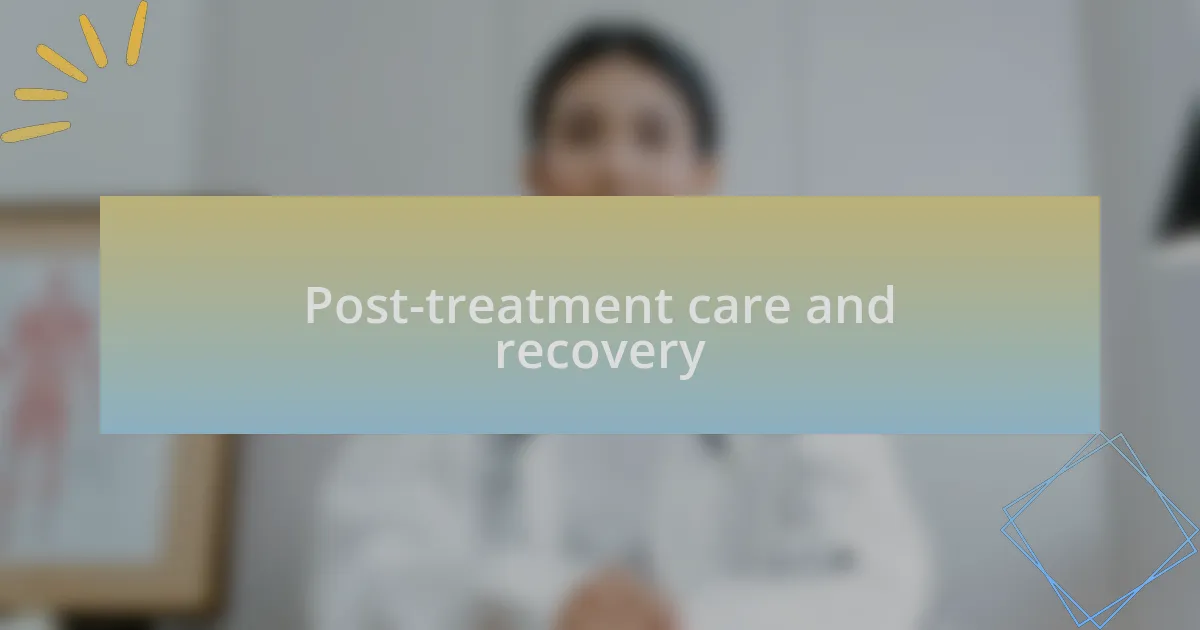
Post-treatment care and recovery
After the root canal, I experienced a range of sensations, from mild discomfort to a slight ache, which reminded me of the importance of following my dentist’s aftercare advice. I was diligent about using the prescribed pain medication, and it truly made a difference in my recovery. Have you ever noticed how taking care of yourself can fast-track healing?
I also learned that my diet played a significant role in the recovery process. Sticking to soft foods was a challenge because I love crunchy snacks, but it was crucial. I vividly remember my first attempt at eating a soft banana—what a relief it was to enjoy something gentle on my sensitive tooth! It made me realize how adapting my meal choices, even temporarily, was an act of self-care.
Additionally, maintaining proper oral hygiene during recovery became my priority. I was anxious about the healing process and worried about affecting the treatment, so I carefully brushed my teeth without irritating the area. This attention to detail paid off as I could feel my mouth returning to normal. Don’t you find it interesting how a little diligence in our daily routines can lead to significant improvements in our well-being?
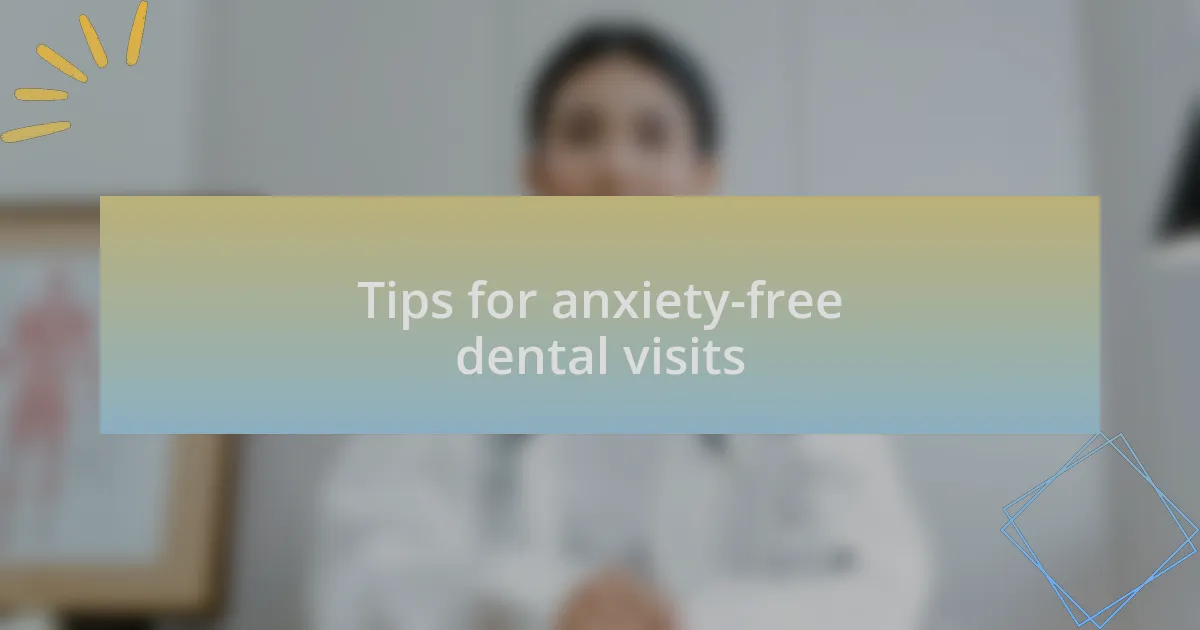
Tips for anxiety-free dental visits
I’ve found that preparation can significantly ease anxiety before a dental visit. One strategy that worked for me was to familiarize myself with the procedure by asking my dentist questions ahead of time. Knowing what to expect made me feel more in control. Have you ever tried jotting down your concerns or questions? It transforms anxiety into clarity.
On the day of my appointment, I took a moment to practice deep breathing exercises in the waiting room. Focusing on my breath helped ground me and reduce those racing thoughts. I remember feeling a wave of calm wash over me, and it made a noticeable difference. What simple techniques have you used to alleviate anxiety in similar situations?
Additionally, bringing along a comforting distraction, like my favorite music or a podcast, has made my dental visits more enjoyable. I recall sitting in the chair, headphones on, and suddenly feeling transported away from the clinical environment. This tactic not only distracts from the procedure but also creates a sense of familiarity. Isn’t it amazing how something so simple can shift your perspective?